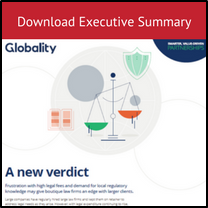A new verdict
Kevin was a member of The Economist Intelligence Unit’s Thought Leadership team in North America and is based in San Francisco. From 2014-2017, he was based in The Economist’s Singapore office and led multi-year integrated content programmes such as Growth Crossings, a series about the new rules of global trade, and the Producers of Tomorrow, an initiative about the future of manufacturing. Prior to joining the EIU, he spent two years as Vice President, Institutional Marketing at BlackRock, the world’s largest asset management company. In that role, he produced and edited white papers, website articles and newsletters aimed at some of Asia’s biggest institutional investors. Kevin also spent 10 years as a journalist covering financial markets, economics and policy for Reuters in Singapore, Hong Kong and New York. As a correspondent and editor, he covered the global financial crisis from Wall Street and its aftermath in Asia, where he led market-moving coverage of the region’s economic policymakers.








